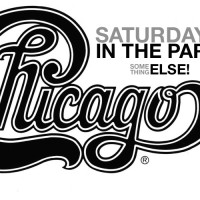“Oh, what a lucky day
Things are goin’ my way”
After being a major contributor to two Stephen Stills albums (Stills and Illegal Stills) on both guitar and vocals, Donnie Dacus was not given the credit he felt he deserved. Considering the breadth and scope of his contributions to those albums, it’s not difficult to empathize with that sentiment.
Some might even argue those albums should have been Stills & Dacus albums, in the spirit of other ’70s power duos like Loggins & Messina, Seals & Crofts, or England Dan & John Ford Coley. But that was not to be; it wasn’t time yet.
Fast forward a few years, and Donnie Dacus was brought in as Chicago’s new guitarist after the passing of Terry Kath. It’s not fair to Dacus nor to Kath to use the word “replace” in this instance. Terry Kath was irreplaceable and, rather than try to do so, Chicago opted to bring in someone with a style all his own – a style that was a substantial departure.
Given his trials and travails in the music industry prior to landing in Chicago, the autobiographical lyrics on this track from 1978’s Hot Streets make for an impressive introduction. Perhaps what is most obvious on “Ain’t It Time” is the vocal chemistry shared between Donnie Dacus and Peter Cetera. (It’s a chemistry that would be further evidenced by Dacus’s vocal interjections on “No Tell Lover” later on this album, but I digress).
To go from being a largely uncredited partner with Stephen Stills to being pushed into the spotlight with Chicago (not to mention being cast in the film version of Hair), it’s easy to see how Dacus finally felt his moment had arrived.
Chicago went on to play Stills’ “Turn Back the Pages” live, and later recorded their own version of Stills’ “Closer to You” as a non-LP B-Side for “Must Have Been Crazy.” Both were moves that could be seen as “throwing shade” at Stephen Stills, but “Ain’t It Time” comes across as a shedding of a chip from Dacus’s shoulder after his time with Stills.
Donnie Dacus’ guitar work has a clean, polished vibe and his strong, crisp tenor vocals mark a stark contrast from Terry Kath’s soulful baritone and more jazz-tinged rock guitar. He was simply never meant as a replacement for Kath, but instead was a new guitarist who – at least for a time – marked a new direction for Chicago.
- The Most Surprising Moment on Alan Parsons Project’s ‘Eve’ - August 27, 2024
- Why the Audiobook Versions of Jimmy Barnes’ Autobiographies Are Definitive - June 24, 2024
- Kahvas Jute – ‘Wide Open’ (1970): Antipodean April - April 28, 2024



